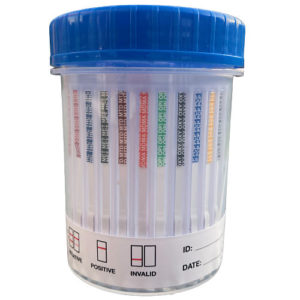The most frequently used drug in the UK is Caffeine. It is found in hot drinks such as tea and coffee, and in cold drinks such as Coca-Cola and Red Bull. Many over-the-counter medicines also contain caffeine, such as Panadol and Pro Plus.
After caffeine, the next most commonly used drug in the UK is Alcohol. In third place comes nicotine, which can be found in cigarettes and other tobacco-based products.
These drugs, and many others, fall into general categories that classify them according to the effects that have on your body.
Depressants
Drugs that slow down the central nervous system are known as depressants. Drugs that fall into this category include: alcohol, heroin, methadone, solvents and tranquillisers. Depressants can slow reactions, meaning that you should never drive or work machinery when under the influence of them.
Depressants, such as alcohol, lower activity in the brain and central nervous system, easing tension and lowering inhibitions. Use of such drugs in the workplace can be inappropriate and cause problems. It has been estimated by the International Labour Organisation that 40% of all workplace accidents are caused by alcohol.
Because employers in the UK have a legal responsibility to provide a safe working environment for their employees, contractors and visitors, many now test their staff for alcohol and other drugs as a matter of routine.
Stimulants
Drugs that fall into this category include amphetamines (‘speed’), caffeine, ecstasy, cocaine, mephedrone and tobacco. Stimulants work by raising the heart rate to give the user a heightened feeling of energy and alertness.
Stimulants can also be a concern for employers. Even when such drugs are used recreationally, outside of the workplace, they can affect the performance of staff who might feel tired or depressed at work as they ‘come down’ from the drug. Another worry for employers is that shift workers, for example, might use such drugs to help them work for longer amounts of time, often becoming dependent on the drugs that they have been taking.
The body may suffer unfavourable health repercussions from stimulants. Long-term usage of cocaine and amphetamines can result in addiction, heart troubles, and psychological disorders like paranoia and anxiety. Despite being commonly consumed, caffeine can also have unfavourable consequences like sleeplessness, nervousness, and accelerated heart rate.
Additionally, because many stimulants, including ecstasy and mephedrone, are produced in illegal laboratories and the precise makeup of these substances is sometimes unknown, using them can be exceedingly risky. Drugs that are tainted or adulterated as a result of this lack of regulation may have unpredictable and even lethal effects.
Using tobacco, a frequent stimulant, is a serious public health concern because it is linked to a number of malignancies, respiratory conditions, and cardiovascular issues.
Many employers now use a multi-panel drug test to detect recent use of stimulants.
Hallucinogens
These types of drugs chance the way people perceive their surroundings and feelings. Most of the time users will find this an enjoyable experience. However, sometimes these types of drugs can cause paranoia or anxiety. Some of the most commonly used hallucinogens include cannabis, ketamine and ‘magic mushrooms‘, with cannabis being the most commonly used illegal drug in the UK.
The types of drugs can also be a major concern for employers. Because they can affect the user’s sense of time and perception, these drugs can again be dangerous in ‘safety critical’ jobs.
The use of hallucinogens can also have a variety of negative physical and psychological repercussions. Hallucinogens can physically result in a faster heartbeat, a loss of coordination, and a rise in body temperature. Users may psychologically go through strong emotions, skewed thinking, and altered reality perception.
Additionally, using hallucinogens over an extended period of time might have negative impacts on one’s mental health. These medicines can cause persistent psychosis, mood disorders, and even flashbacks, which are hallucinations that last long after the drug has been taken, if used for an extended period of time. These long-term consequences can
In the UK the most frequently used illegal drugs are:
The UK government’s crime survey for England and Wales reported in 2013/14 that 6.6% of adults admitted to having tried cannabis in the previous 12 months. Cocaine came out as the second most frequently used drug with 2.4% admitting to have tried it in the last year. Ecstasy use came third at 1.6%

Detecting them all with an 18 Panel Urine Drug Test
Depressants, hallucinogens, and stimulants – this comprehensive 18 panel urine drug test from Zoom Testing, UK’s leading drug testing experts, has you covered. With its cutting-edge design, this test cup detects a wide range of substances, including the downers like barbiturates and benzodiazepines, the mind-bending hallucinogens like PCP, and the uppers like amphetamines, methamphetamines, and cocaine. But that’s not all – it also screens for opiates, cannabis, and even nicotine, ensuring a thorough evaluation of potential substance abuse.
The beauty of this test lies in its user-friendly integrated cup design, making sample collection and analysis a breeze. No more messy spills or handling concerns – simply provide a sample, and let the test work its magic. With temperature and adulteration checks built-in, you can trust the accuracy of the results.
Zoom Testing’s 18 panel drug test is a game-changer for employers, healthcare providers, and anyone seeking a reliable, all-encompassing solution for drug screening. Whether you’re looking to maintain a drug-free workplace, monitor substance abuse treatment, or ensure safety and compliance, this test cup has got you covered. So why settle for less when you can have the best? Trust Zoom Testing, the UK’s drug testing experts, to provide you with the tools you need to detect depressants, hallucinogens, stimulants, and beyond.
Photo: “Pills” by Anthony Cunningham for Zoom Testing
Zoom Testing is a leading UK drug testing company and a supplier of Drug Test Kits.





